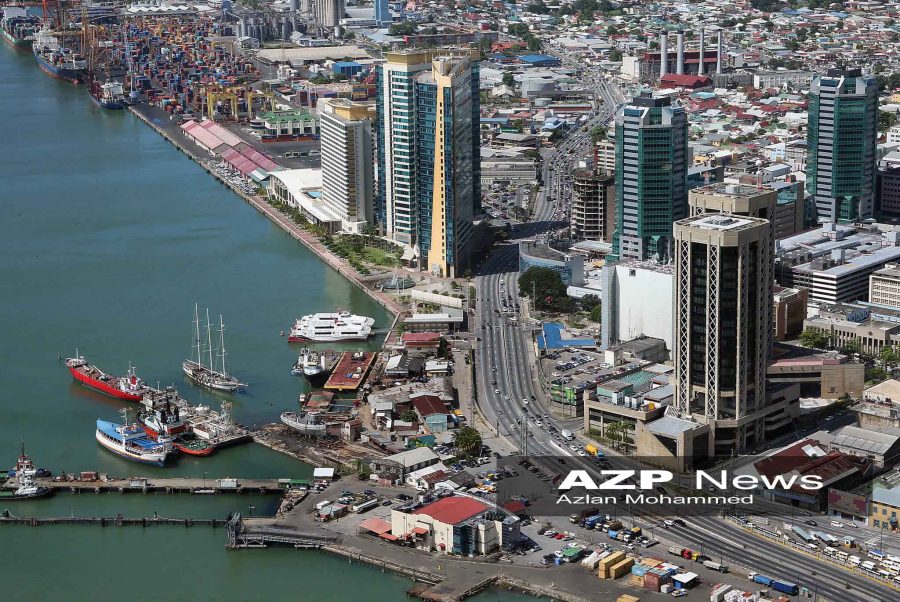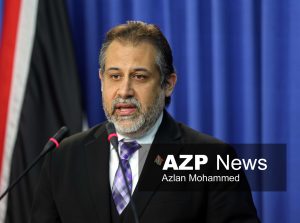AZP News Commentary

ON October 30th, 2024, Scotiabank notified its customers that it would reduce the maximum US$ spending limit per calendar month for its credit cards.
RBC and Republic Bank made similar announcements in July 2024 and September 2023 respectively and as far back as 2020, a former Trinidad and Tobago Chamber CEO had sounded an alarm over an RBC credit card curtailment. These actions by the banks reflect insufficient US dollars to meet the demand from their customers.
In a Sunday Express article (Oct 27, 2024), businessmen voiced concerns with the arrangements for access to US dollars at the EximBank. The Ministry of Finance retorted via press release (Oct 29, 2024) citing that the arrangement with food importers was a temporary measure introduced during the pandemic. Shortly after, the Cabinet announced the resumption of the special foreign exchange window at the EximBank for essential imports.
The ministry also lashed out against the Sunday Express for what it saw as a “mischievous” and “misleading” article. This is a case of shooting the messengers while ignoring the message. T&T has a growing problem with the supply of US dollars which some see as approaching crisis proportions. It is manifesting itself daily and crippling many businesses. Some commentators see the problem as being the distribution channels of forex but there is a deeper issue.
The core issue is the diminished capacity of the T&T economy to earn foreign exchange. The situation is evidenced by the fall in foreign reserves from US$11.4 billion in December 2014 to US$5.6 billion in September 2024.
Moreover, but for foreign borrowings, HSF drawdowns and an IMF Special Drawing Right distribution in 2021, that number would be closer to zero. Both this problem and its origins have never been adequately defined by the Ministry of Finance or the Central Bank.
T&T’s forex conundrum is mainly related the decline in the energy sector which has precipitated low inflows of US dollars from:
(1) Taxes and royalties paid to the government and;
(2) Energy companies converting US dollars to get TT dollars to fund their operations.
With regard to (2), conversions from energy companies are down due to lower activity levels and the effect of VAT bonds issued in 2023 which meant there was less need for conversions.
Energy companies converting USD to TTD is the largest source of USD for the commercial banks.
In the last 10 years, T&T’s main energy exports have significantly declined. Natural gas production declined by 36%, oil production 37%, LNG production by 40% and ammonia production 21%.
The prices for these commodities, were arguably subject to extraordinary events in 2020/2021 (Covid) and 2022 (Russia’s invasion of Ukraine) which caused lows and highs. However, using the Brent price as a proxy for the prices of most energy commodities, oil prices have averaged US$75/barrel from January 2020 to September 2024 which is not an unhealthy price.
The prime minister sees the production of natural gas as improving by Q2 2027. His optimism is predicated on the Manatee project. While Manatee is important, its full impact won’t be felt until 2028 and even then, what it adds to national natural gas production will only get us back to 2022 levels of production. Manatee is not an economic magic wand.
Additionally, we have no idea where natural gas prices will be in 2027 and beyond. The global trend is towards oversupply.
The proposed plan to make energy companies pay all their taxes in USD will not address the underlying structural issues of supply. How do energy companies that earn income in USD get TTD? They sell US dollars to the commercial banks. Therefore, if they have to pay all taxes in USD there is less need for them to convert USD to TTD. The US dollars they would have sold to the banks now go to the government. This is merely moving USD from one bucket to another bucket.
Admittedly, there are some advantages to doing this given that international energy companies operating in T&T tend to bank with international banks which gives these banks an advantage over FCB and Republic Bank.
The other solution is getting the multinational energy companies to increase “in-country spend” on projects. For the last 20 years there have been efforts at increasing local content in the energy sector, and while there has been some progress, more can be done. T&T also needs an economic strategy that focuses on earning more USD from its non-energy sector. The golden opportunity staring us in the face is with the maritime services sector, but I fear we will miss that opportunity.
The immediate solution resides with the energy sector. We must increase the production of oil and natural gas while planning for a new economy beyond oil and gas. The government, and I would add many in the public service leadership, suffer from what Seth Godin calls, “strategic myopia”. This speaks to sticking to one strategy. How do we build beyond oil and gas?
In closing, it is widely accepted that the TTD is overvalued. The current government’s monetary policy is to defend the exchange rate. How long can that defence continue for? A depreciation of the TT dollar has consequences for the cost of living for an already beleaguered population. We need to carefully plan our way out of this forex frustration.
Kevin Ramnarine is a former Minister of Energy of Trinidad and Tobago
![]()













